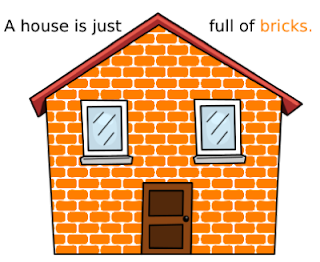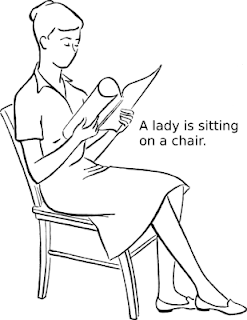The 6 easy tips that you find below will be very helpful in letting you realize the difference between speaking in English and speaking in English properly. Many people say that English is a funny language. But, only people who have done their research in English or on a particular topic in English will know that English is not a funny language, but a fun language after all.
If you are someone who is very keen on improving your English skills, you already would have started wondering about the difference between the adjectives funny and fun (
Click here for fun vs funny) & the usage of 'in' and 'on' for the word research. (
Click here for 'research on' vs 'research in')
Now, coming back to the 6 easy tips to speak in English fluently, the following are the tips that will let you tweak your English slightly to result in huge differences positively.
1. Don't ask questions in the form of answers.
2. Start using simple phrases.
3. Avoid one-word conversations.
4. Watch BBC News regularly.
5. Speak with kids in your neighbourhood.
6. Don't confuse English with your mother tongue.
1. Don't ask questions in the form of answers:
I do not know from which country you are reading this post. I belong to a beautiful country called India where I realize that many people ask questions that are answers actually. But, they speak it in such a way that the listener will understand that it is a question. The following are the wrong ways people ask questions.
Wrong examples:
1. You made the mistake no?
2. You made the mistake ah?
The above examples are an awful way of speaking in English, especially when people concentrate on your English. The correct or suitable ways of speaking the above sentences are mentioned below.
Correct examples:
A). You made the mistake, didn't you?
or
You have made the mistake, haven't you?
or
You made the mistake, right? (Using 'right' is not advisable, but may be followed)
B). Have you made the mistake?
or
Did you make the mistake?
When you already know the answer for your question, but still, you would like to get it confirmed, follow example(A). When you completely do not know the answer for your question, follow example(B) which is the normal way to ask a question. No matter whether you follow A or B, never follow the wrong examples that I have given for your reference.
2. Start using simple phrases:
This is one of the simple tips that will make you speak in English fluently in a significant manner. Phrases are two or more joined together that could be used regularly for different scenarios. Some of the commonly used phrases are
Would you like to ........?
Do you ....?
May I ....?
Examples:
Would you like to have a cup of tea?
Would you like to come with me for a movie tonight?
Do you need any help?
Do you know what time it is now?
May I come in?
May I go out?
May I help you?
When you start using phrases, you'll find English very easy because, most people speak in English without phrases. So, when you include phrases, you are almost perfect with your English.
3. Avoid one-word conversations:
Follow this tip and you'll realize that speaking in English is a cakewalk. I know that you are very convenient in giving 1-word answers like yes or no for most questions, but, believe me...you might save energy following this tactic, but your English will never improve at all.
Sample questions:
1. Do you know where Ramesh is?
2. Do you love Jessica?
3. Have you ever watched the movie, 'American Pie'?
Wrong answers:
1. No.
2. Yes.
3. Definitely.
Correct / Advisable answers:
1. No, I don't know where Ramesh is.
2. Yes, I do love Jessica.
3. Definitely! I have watched the movie 'American Pie'.
You might know what number comes after 100. That doesn't confirm that you know all the numbers till 101. This is similar to Roger Federer. He makes his own tennis schedules right now cause he is a complete tennis player. Similarly, first, learn the language and then play with the language as you wish.
4. Watch BBC News regularly:
I know it's a pain in the back to watch a channel, especially a news channel, just to learn a language. As the proverb goes,
'no pain...no gain'. BBC News is a great channel for people who follow British English. Become a follower of that channel and you will have both the knowledge of the world and English in your finger tips.
Click here for the
Learning English app from BBC, a fun and informative way to learn English.
5. Speak with kids in your neighbourhood:
No language can be mastered without practicing to speak. English is no exception to this. But, if you are a grown-up, it might be tough for you speak in English when you are in the learning phase. You might make a lot of grammatical mistakes and the listeners might laugh at you and you might find it embarrassing, Still, speaking practice is required. The best way is...speak with kids in your locality. I am pretty sure you can speak better than them. You could also end-up training them on English. Wouldn't that be a great way to show off!
6. Don't confuse English with your mother tongue:
English, as much as is a universal language, it has some of its words imported from various other languages. Hence, English is one language that you should never try to learn comparing it with your mother tongue.

















